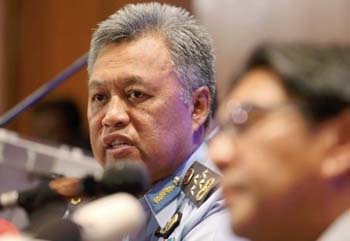 Kuala Lumpur, Mar 9: A Malaysia Airlines plane that went missing after taking off from Kuala Lumpur for Beijing Saturday may have turned back before it disappeared, a civil aviation official said Sunday.
Kuala Lumpur, Mar 9: A Malaysia Airlines plane that went missing after taking off from Kuala Lumpur for Beijing Saturday may have turned back before it disappeared, a civil aviation official said Sunday.
Malaysian authorities are also investigating two passengers who had used false passports to board the plane, Xinhua reported citing Azharuddin Abdul Rahman, director general of the department of civil aviation.
Two people, an Italian and an Austrian, whose names were on the passenger list of the missing plane, reportedly did not board the aircraft and both had lost their passports.
Italian Luigi Maraldi, who was thought to be on the missing aircraft, is not in the aircraft as his passport was stolen in Thailand in August last year, Italian investigators said Saturday.
The 37-year-old Italian man's name was on the boarding list furnished by Malaysia Airlines which reported that its flight MH370 carrying 239 people had lost contact with air traffic control about two hours after leaving the Malaysian capital early Saturday.
Maraldi phoned his father Walter, a resident of Italy Cesena city, Saturday to tell him that he was not on the missing plane but safely in Thailand, Xinhua cited his father as telling the Italian media.
An Austrian, whose name was also on the boarding list of MH370, had his passport stolen as well. The Austrian foreign ministry said the man was safe at home.
The Malaysia Airlines Boeing 777-200 passenger plane with 239 people on board, including five Indians, 154 Chinese and 38 Malaysians, lost contact with air traffic controllers Saturday.
There is still no confirmed information about the fate of the plane.





Comments
Add new comment